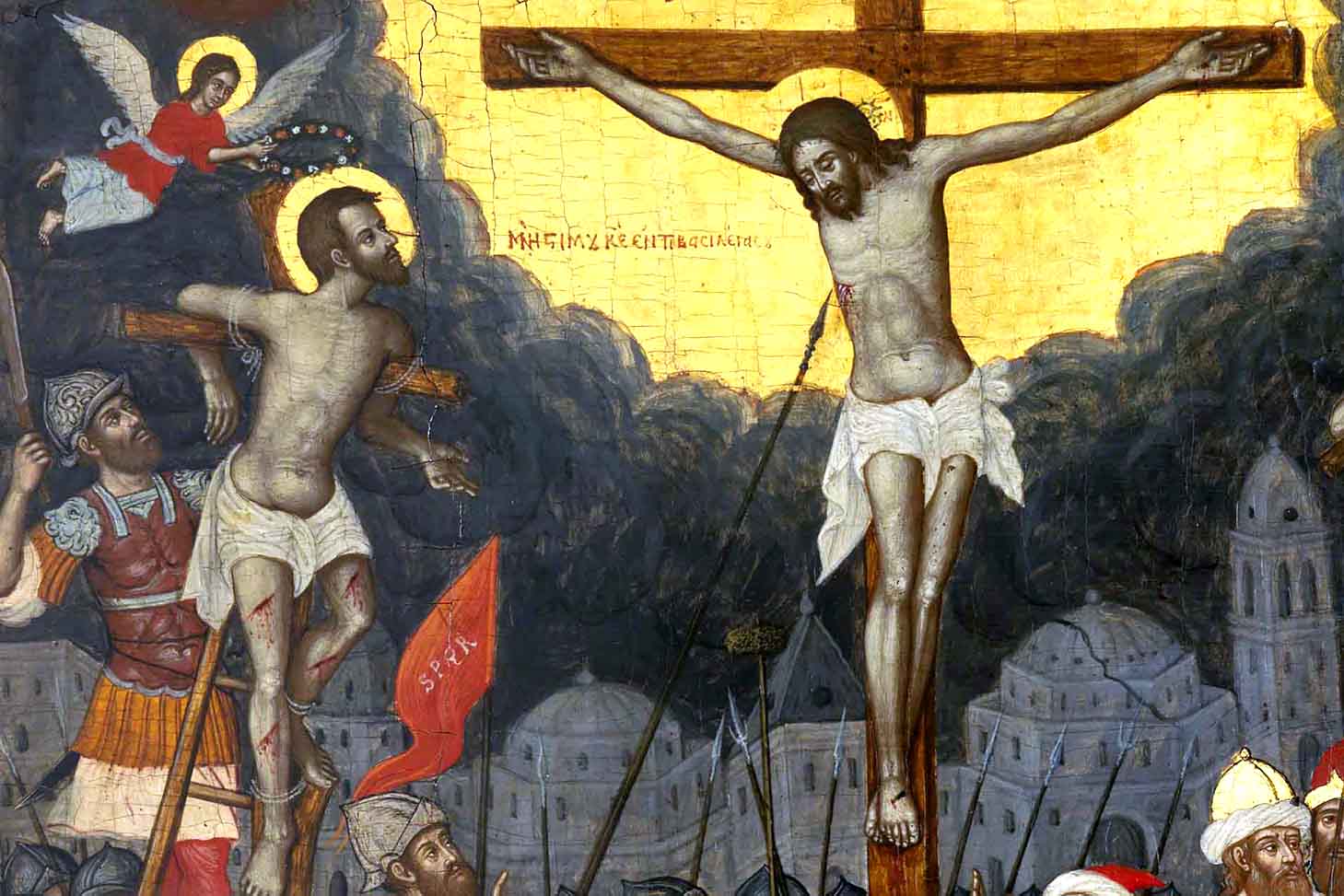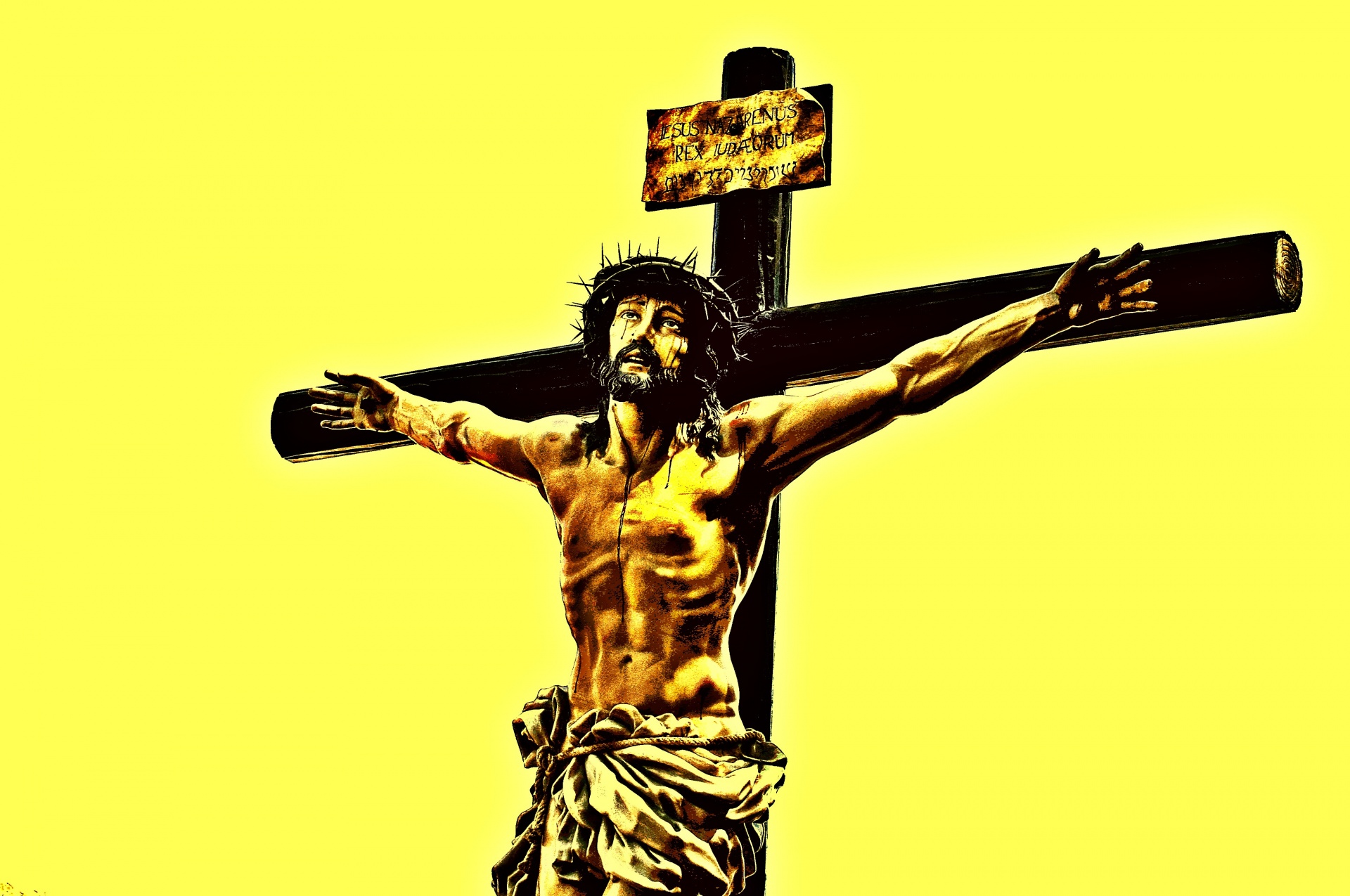Correction, they're all good, but this one is particularly great because of when it takes place in our calendar. Not in the church year calendar, that's one thing. But it comes up in our calendar right now, which is the most timely moment for it. Because this is the moment in which we get to think about the harvest. And a surprising thing, that shouldn't surprise anyone, is that our lives are still partially ruled and guided by the harvest. Now, it shouldn't be that way because we should be eating full meals in pill form. But we're not. Instead of that, we're still eating food that grows from the ground or grows on legs, and that's about it. Isn't it crazy that we're still only eating plants and animals and not full meals out of lab-grown chemicals? Nuts.
So given that we're only eating food that we get from plants and animals, and given that we still have to bring all this stuff in from the fields, the harvest time is still crucial. Absolutely vital. And harvest is something that you can't just leave for later. You can't just leave it until you get a round tuit. When it's harvest time, it's harvest time now. There's a sense of urgency that, thanks to our continued analog mouths, still lives in our minds. That is, we're looking at a sense of urgency that was just as urgent back in the time of Christ as it is today. If you leave the fruit on the vines for an extra week, they're going to be bad. And rotten. And gone.
So if you know that there's a ticking clock here, and you know that we've been under this same ticking clock for the full 2000 years and more, then you can understand the urgency in the mind of the landowner and his harvest. He goes out, looks at his harvest, sees that it has come due, and knows that he is running out of time. So he goes to hire some day-labourers who are standing out in the agora, waiting to be picked up for work. He goes and picks them up at Prime, the first hour, and says that he'll pay them a denarius. And that's fair. If you work a day, you get a denarius. That's the wage for a worker. Workers get a denarius, no more, no less. That is, if they work a full day. If you work less than a full day, you get some sestersii, which are the farthings to the penny of the denarius, or perhaps the quarters to the dollar of the denarius. If you work a full day, though ,you get a denarius. So they go out to work for the full day, but the landowner sees the work that has to be done is still very large, so he goes out to hire more people. At the third hour of the day (terce), and the sixth hour of the day (sext), he hires more people. And he promises to pay them whatever is right.
And that keeps going until compline, until the eleventh hour of the day. Until the day is almost over. And the landowner still needs a bit of help to get all that work done, so he hires some 11th hour workers. And they all work to bring in the harvest. And they finish the job. So they come to get paid, and those who worked for only one hour get the full denarius. Now, if you've been working all day, then your eyes are making Roman dollar signs. For if someone who works only an hour gets a full denarius, then what are you going to get for working all day? 12 denari? two weeks' worth of wages for a day? Sounds great! But when the landowner gets to them, they get paid the same denarius as everyone else. And they rightly point out that the landowner has not been fair.
Which is true.
The landowner wasn't fair, but it's not that he was unfair to those who had been there all day. Those were the only ones who he was fair with. They worked all day, and they got exactly what they contracted for, unlike everyone else. Everyone else was told that they'd get whatever was right, and as it turns out, that was far more than they could have anticipated based on how much they'd worked. But those who had been working all day only got what they'd contracted for. As you know by now, I do love the Alien series of films, and in the first Alien film, Parker and Brett are talking about how they'd like some more money for going down to the surface of LV-426, and Captain Dallas tells them 'you get what you contracted for, just like everyone else.' They respond by saying 'Everyone else gets more money than us.' And that's a clear distillation, isn't it? A clear distillation that says that they're being paid fairly, which they are, but that proportionally, everyone else does, in fact get more than they did. But they still got what they contracted for.
And when we look at this passage, we get to thinking of ourselves as being in that passage, which of course, we do. But we see ourselves in a very strange place. We see ourselves in a space where we have borne the heat of the day and the work. But the funny thing is that we are coming to this way at the end of things. We are rejoining this battle much nearer the end than the beginning. I know we think of ourselves as those who make meals, sew masks, knit gloves, knit scarves, pack hygiene kits, all that sort of thing. And though I don't want to belittle those things or for you to stop doing them, you should understand that those working at the sixth, ninth, and even eleventh hour were working hard too. But they didn't bear the heat of the day in the same way as those who came first. The harvest was very wide and broad, and the work had to be done, which is why people had to be added, for sure. But the people who started at the beginning had to do more and more difficult work.
Think about Paul in our epistle reading from Sunday. Paul who says that he wants to go and be with Christ, but it is good for him to remain here on earth because it is fruitful labor for him to do so. In other words, the longer he stays, the more work he will be able to do. What work is that? That's the third hour of the day work. The work that says that he is there to be an ambassador for Christ, to bring Christ to the world, and to an unbelieving world at that. And boy was the world unbelieving. It was an incredibly hostile place to be a Christian. Sandwiched between the Hebrews on one side, the Romans on the other, every place that the disciples went was a hostile port for them to land in. This is why 11/12 disciples were killed violently for their evangelism. Sawn asunder, raked with iron combs on a cross, beheaded, killed with the sword, all these things happened to the disciples who bore the heat of the day. Most of us, all we had to do was just show up at a church that had been built for us, and not only that, but to show up in a culture that had been built up to know and prefer the Christian church. The world that most of us were born into, even in this late hour, is a world where prayers to Christ are said publicly, where we are permitted, and sometimes even encouraged to go to church. It's a world in which every single prime minister, and every single president has been a Christian, at least on paper. A world where politicians can go out holding Bibles as a way of trying to curry favor with an electorate. In other words, this is a world where a lot of hard work has been done. And we are closer to the end of the story than to the beginning. The disciples, the apostles, Paul, Mary Magdalene, all those people and more besides were working a lot longer than we have been. And part of the humility of us when we approach this text is to understand that the denarius that they earned from their backbreaking (sometimes literally) labor is the same as the denarius that is promised to us, too. The question isn't so much "how unfair is it that people who come after us get to slide into the same heaven as us," but rather, "how unfair is it that we get to slide into the same paradise as Paul, Peter, James, John, Mary, Martha, and the rest of the people we know from the scriptures?" It's unfair, but it's unfair in our favor.
But it goes one layer deeper. Even the Apostles and Saints didn't work from the beginning. Even they aren't owed a denarius for their work. They hadn't worked hard enough to earn the full wage, not even close. All of them had to be told 'follow me' by Christ, all of them had given less than 100%, all of them had to have their sins forgiven, all of them had to be redeemed. The only one at work from the beginning was Christ. He was at work from the creation of everything, and in his life on earth, he was the only one who had been consistently good, like actually good. Not pretending to be good, not good sometimes, but actually at work in God's kingdom from his birth to the cross. He actually earned paradise, and the great part of the Gospel promise is that we are given what he was owed. Only he worked hard enough, and yet everyone who comes after, everyone whose faith is fleeting, who can't quite seem to get it all the way together, the people who will say 'Lord I believe, help my unbelief,' all those people get paid the same as Christ. Same heaven, same paradise.
As frequently happens, we get to talk about the thief on the cross, who says to Jesus 'remember me when you come into your kingdom.' Jesus replies, 'today, you will be with me in paradise.' That's an eleventh hour worker, and the promise is that he will be with Christ in paradise. Not in a second, half heaven, for those who haven't worked for very long, but instead the same Heaven that Christ has received, that he earned. That's the good news of the parable, that God is generous to us, and we receive of his generosity. He'd be well within his rights to give us a half or quarter heaven, but it's not about what we earned, nor those who came before us, nor those who come after us. We work in the same vineyard, the same mission field as Christ, but we get paid out of generosity what he earned.
That's good news.



